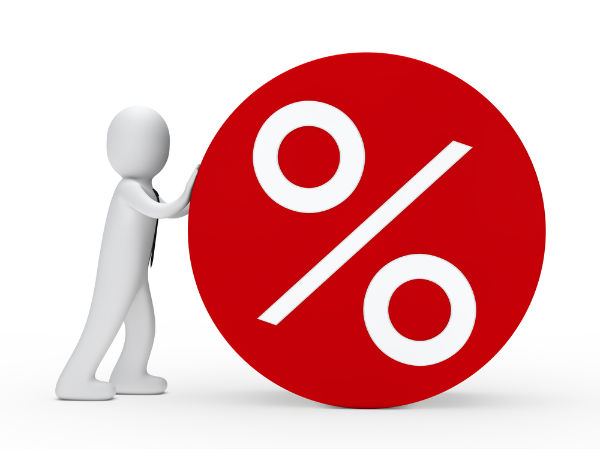Best Tax Saving FDs With Good Returns Up To 7.25%
Fixed deposits (FDs) are among the best means for risk-averse investors to invest for their potential future. Because of the flexibility and assured returns, many people choose tax-saving fixed deposits over other mechanisms like PPF, ELSS, ULIP, and NPS that give better returns under Section 80C of the Income Tax Act of 1961. In a fiscal year, one can save up to Rs 1,50,000 in tax-saving FDs. It's worth remembering that tax-saving FDs vary from standard FDs in a variety of ways. Some of the key facts of tax saving FDs are as follows:

Benefits of investing in tax saving FDs
- Tax saving FDs comes with a lock-in period of 5 years
- Only resident individuals and Hindu Undivided Families (HUF) can invest in tax saving fixed deposits
- Both single and joint individuals can invest in tax saving FDs. Only the first holder of a joint holding can claim the tax advantage.
- For these FDs, the interest can be payable monthly, quarterly, or yearly. You can also prefer compounding, which ensures that any interest you receive is re-invested.
- The return on tax-saving fixed deposits is subject to taxation. The interest is added to your yearly wage and is taxable according to your tax bracket. The amount of interest due is only measured on a quarterly basis.
- TDS is deducted at a rate of 10% from the annual interest received on these FDs by banks. If you want to be exempt from paying tax, you must file Form 15G/H with the bank at the start of the fiscal year.
- Except for co-operative banks and rural banks, every public or private sector bank offers tax saving fixed deposit options.
- Premature withdrawals and loan against tax-saving fixed deposits are not allowed.
- The interest rates on these deposits differ from one bank to the next. Though the largest lender of the country SBI is currently fetching an interest rate of only 5.4% on 5-year tax saving FD, some small private sector banks also offer competitive rates.

Taxation
According to current rules, if an individual invests in a tax-saving FD, he or she can claim the amount invested up to a limit of Rs 1.5 lakh from his or her income. Section 80C of the Income Tax Act allows for this type of deduction. Section 80C also specifies the overall contribution cap, which is currently set at Rs 1.5 lakh. The tax-saving fixed deposit is among the most preferred investment choices currently eligible for seeking a tax exemption under Section 80C of the Income Tax Act. All interest income received from FDs is subject to Tax Deducted at Source (TDS). If the individual's or account holder's interest income surpasses Rs.10,000 in a given financial year, the applicant or account holder is required to pay tax. The account holder, though, would not have to pay tax if the interest received is less than Rs.10,000. The individual needs to submit form 15G (for non-senior citizens) or 15H (for senior citizens) to the bank, whichever is applicable if the interest earned on FDs and overall taxable income earned during the financial year does not exceed the specified taxable limit.

An important note for fixed deposit investors
In her budget speech for 2020, Union Finance Minister Nirmala Sitharaman suggested increasing bank deposit cover in specified commercial banks from Rs 1 lakh to Rs 5 lakh per depositor. Deposits with both commercial banks and cooperative banks are currently covered under the Deposit Insurance and Credit Guarantee Corporation (DICGC), according to RBI guidelines. The DICGC does not refer to Primary Cooperative Societies. According to existing DICGC regulations, each depositor in a bank is covered for both the principal and interest on deposits deposited in that bank up to Rs 1 lakh. It covers all of a person's deposits in current accounts, savings accounts, fixed deposits, and other forms of accounts. In case of bankruptcy, if an individual's overall deposits in a single bank reach Rs 1 lakh, he or she will only be entitled to receive Rs 1 lakh, including principal and interest.

Tax Saving FD Rates For Non-Senior Citizens
The banks listed below give the best rates to non-senior citizens on 5-year tax-saving deposits of less than Rs 2 crore.
| Banks | ROI in % |
|---|---|
| DCB Bank | 6.75 |
| Yes Bank | 6.75 |
| IndusInd Bank | 6.5 |
| RBL Bank | 6.25 |
| AU Small Finance Bank | 6.5 |
| Deutsche Bank | 6 |
| Karur Vysya Bank | 5.75 |
| Ujjivan Small Finance Bank | 5.55 |

Tax Saving FD Rates For Senior Citizens
The banks listed below give the best rates to senior citizens on 5-year tax-saving deposits of less than Rs 2 crore.
| Banks | ROI in % |
|---|---|
| DCB Bank | 7.25 |
| Yes Bank | 7.5 |
| IndusInd Bank | 7 |
| RBL Bank | 6.75 |
| AU Small Finance Bank | 7.25 |
| Deutsche Bank | 6 |
| Karur Vysya Bank | 6.15 |
| Ujjivan Small Finance Bank | 6.05 |































